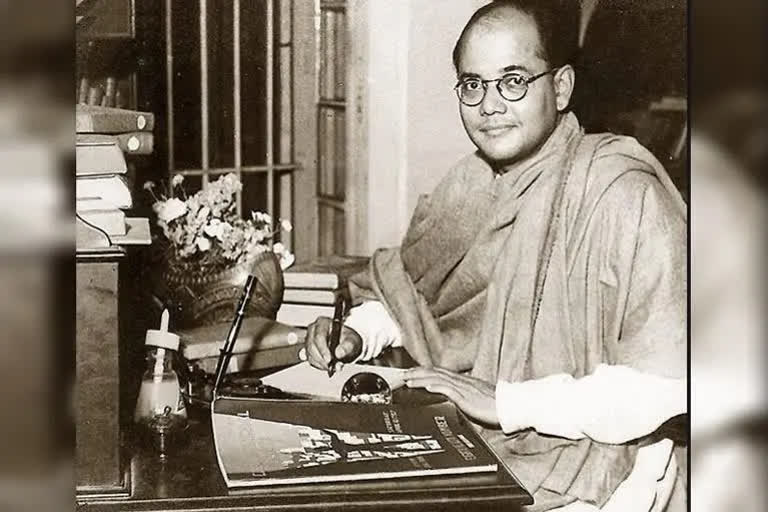Darjeeling (West Bengal): The man who literally gave nightmares to the British during their reign in India, actually loved a hearty English breakfast! The brave heart was none other than Netaji Subhas Chandra Bose. But, why are we suddenly indulging in the gastronomical fancies of one of the tallest figures of India's freedom movement? Well, as they say the taste of the pudding is in the eating, so read on to know why particularly an English breakfast did make all the difference for Subash Chandra Bose, fondly called Netaji.
It was 1936 and Netaji was under house arrest in a bungalow in the hills of Darjeeling. For six months, he was confined within the walls of the Giddapahar bungalow and it was here that he simply shied away from the regular Indian or Bengali breakfast fare and chose the English ones. On most occasions, it was bread and pudding. The bread loaves came to him on the plates alongside the pudding in bowls, Subhas used the loaves as means to sneak past prying British spies. Instructions written to his fellow comrades in Kolkata and other locations were passed out by Netaji concealed in the bread loaves. He had the pudding servings, though.
Netaji was not allowed to mingle or even talk to anybody from outside during his days of house arrest, except his personal butler, Kalu Singh Lama. Every morning, Kalu used to reach upto Netaji's room with his breakfast tray and on most days, the freedom fighter refused to eat the full loaf. After a bite or two, he used to leave it unattended on the plate and Kalu Singh used to duly bring it back to the kitchen for disposal.
Also Read: Govt draws up plans to promote sites associated with Netaji, develops curated tours
But, in those half-eaten or tenderly broken bread loaves, were the letters and instructions of Netaji, which then Kalu used to gather and later on smuggle it to Kolkata inside the soles of his shoes. All under the noses of British spies. Kalu Singh Lama of Giddhapahar became the true comrade of Netaji during his house arrest days.
The family members of Kalu tell the stories, which passed on to them from the butler and then to his daughter Moti. A young Moti had been a special person in Netaji's house arrest days as she was the one who was allowed to go close to Subhas, other than Kalu Singh. Moti fondly remembered the playful days spent with Netaji. The family of Kalu Singh and his descendants have always been at the Giddapahar bungalow.
Incidentally, the bungalow was purchased by Subhas Bose's elder brother Sarat Chandra Bose in 1922 and since then the Bose family had made it a ritual of coming and staying in the quaint place at least two times a year. Subhas used to be a regular visitor with the family, which continued till 1935. It was in his own family house that Subhas was confined to house arrest by the British. In 1996, the bungalow was acquired by the West Bengal government's higher education department and later on handed over to the Netaji Institute for Asian Studies. A museum has come up in the facility, which houses the valour, love for motherland and Netaji's remnants in every corner.
Etv Bharat spoke to Ganesh Pradhan, the present curator of the museum at the Giddapahar bungalow. Pradhan said Netaji had written 26 letters during his house arrest at the bungalow in the hills and he used to receive replies in the same manner. His letters from Giddapahar had gone to Rabindranath Tagore, Jawaharlal Nehru and many others. It was in this very bungalow that Netaji had drafted his speech, which he later delivered at the Haripura Congress in 1938.
The Giddapahar bungalow stands tall today amid the lush green hills keeping the secrets of Netaji Subhas Chandra Bose wrapped under its covers and tucked in the rooms and corners. A secret history of India's struggle for freedom.


